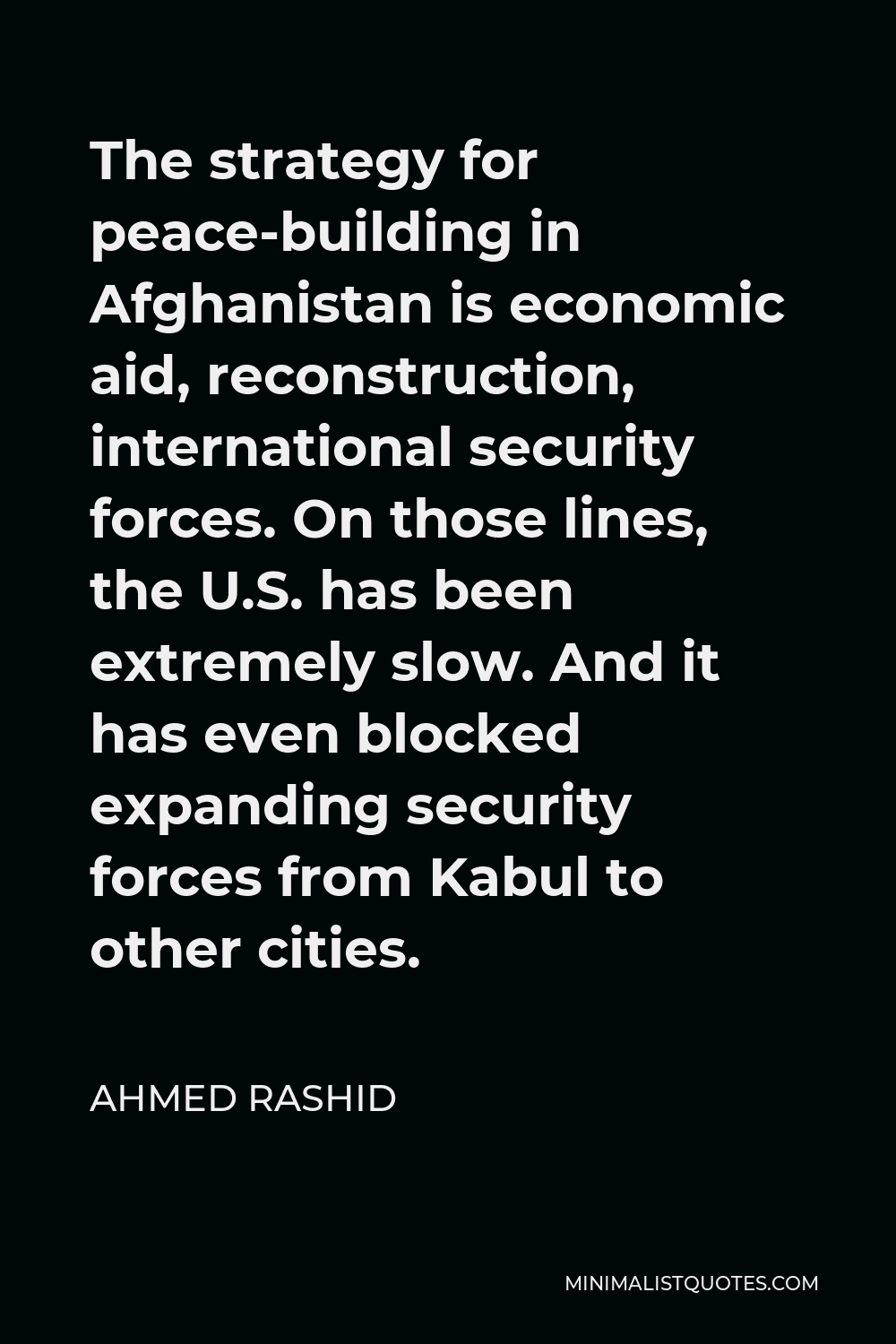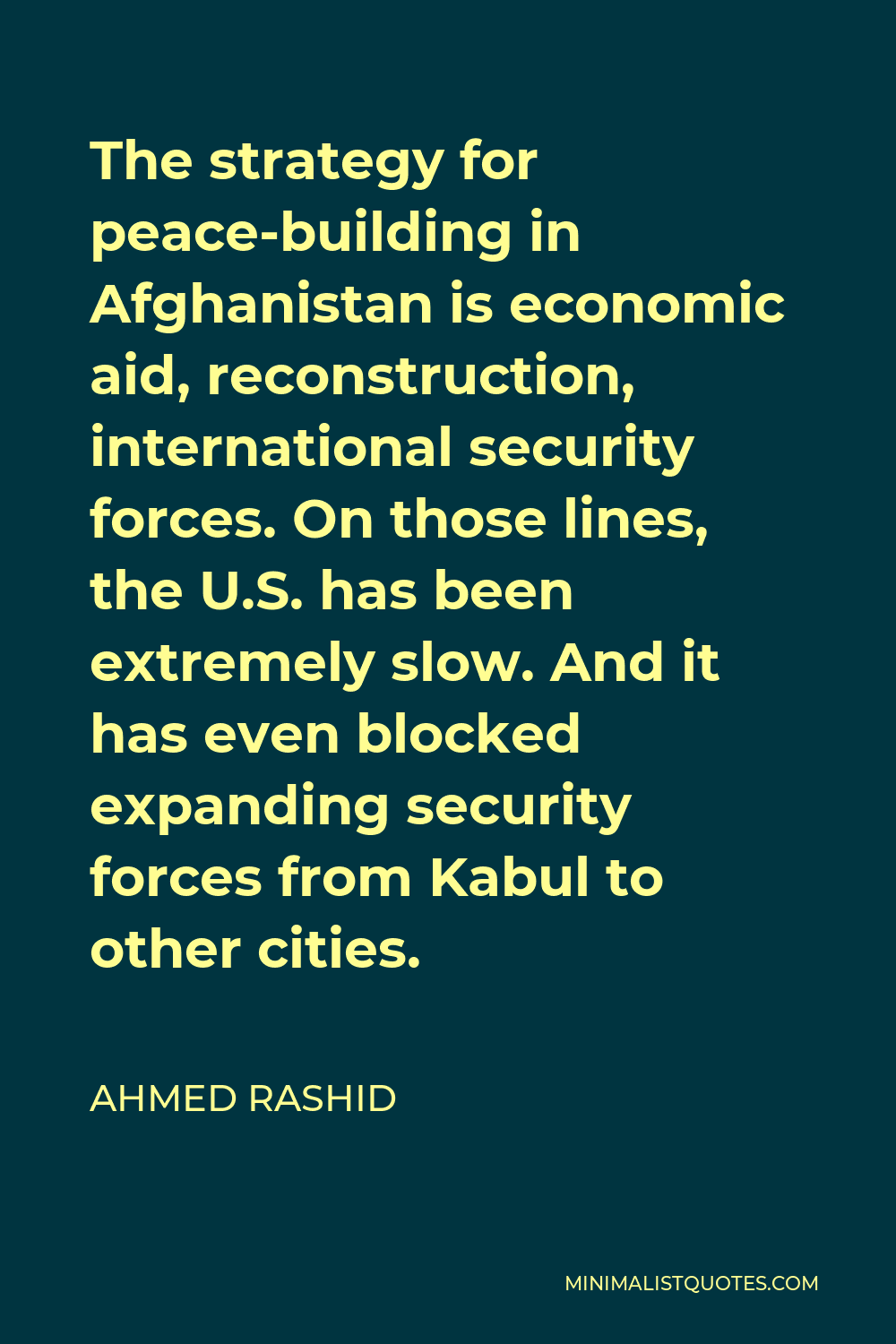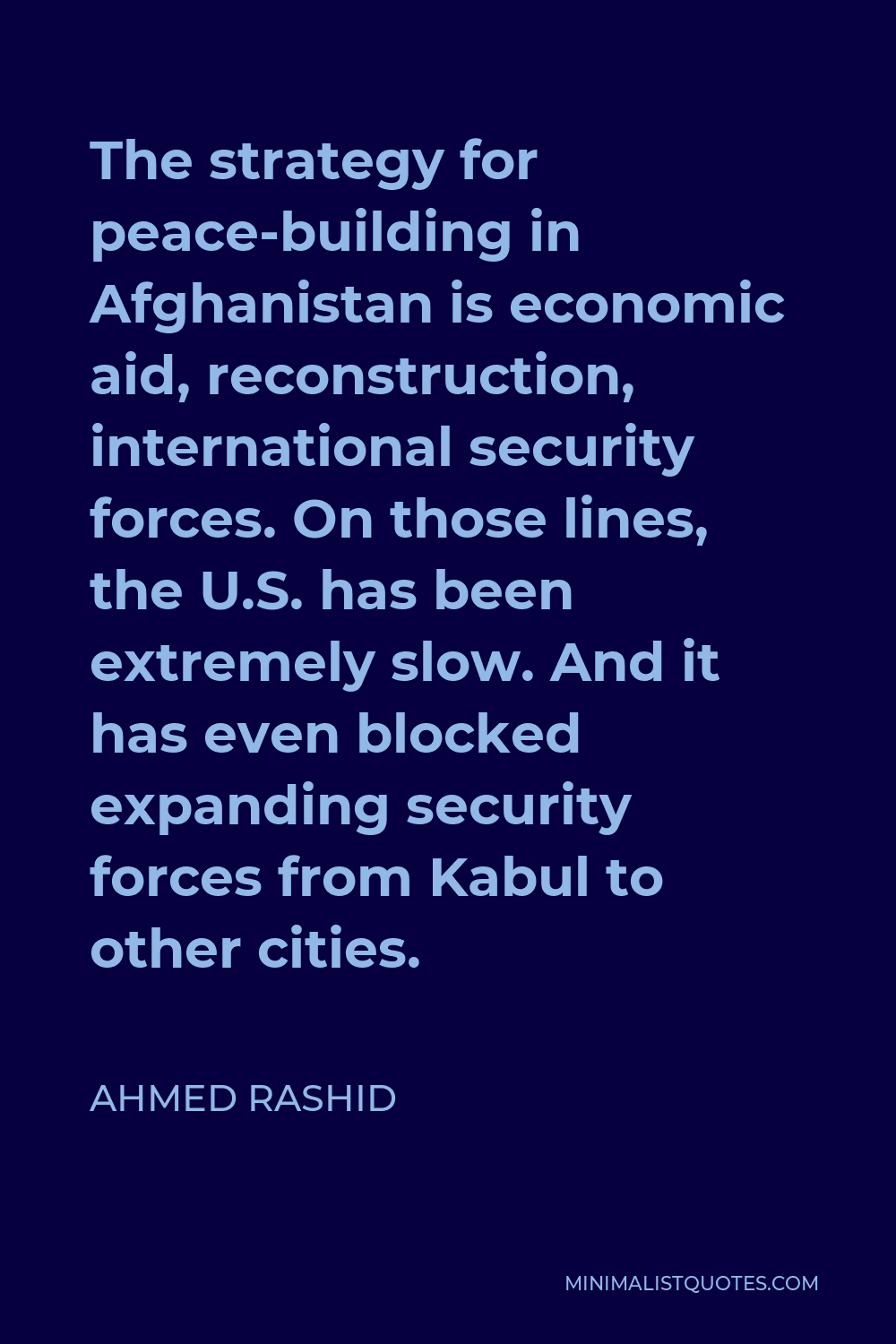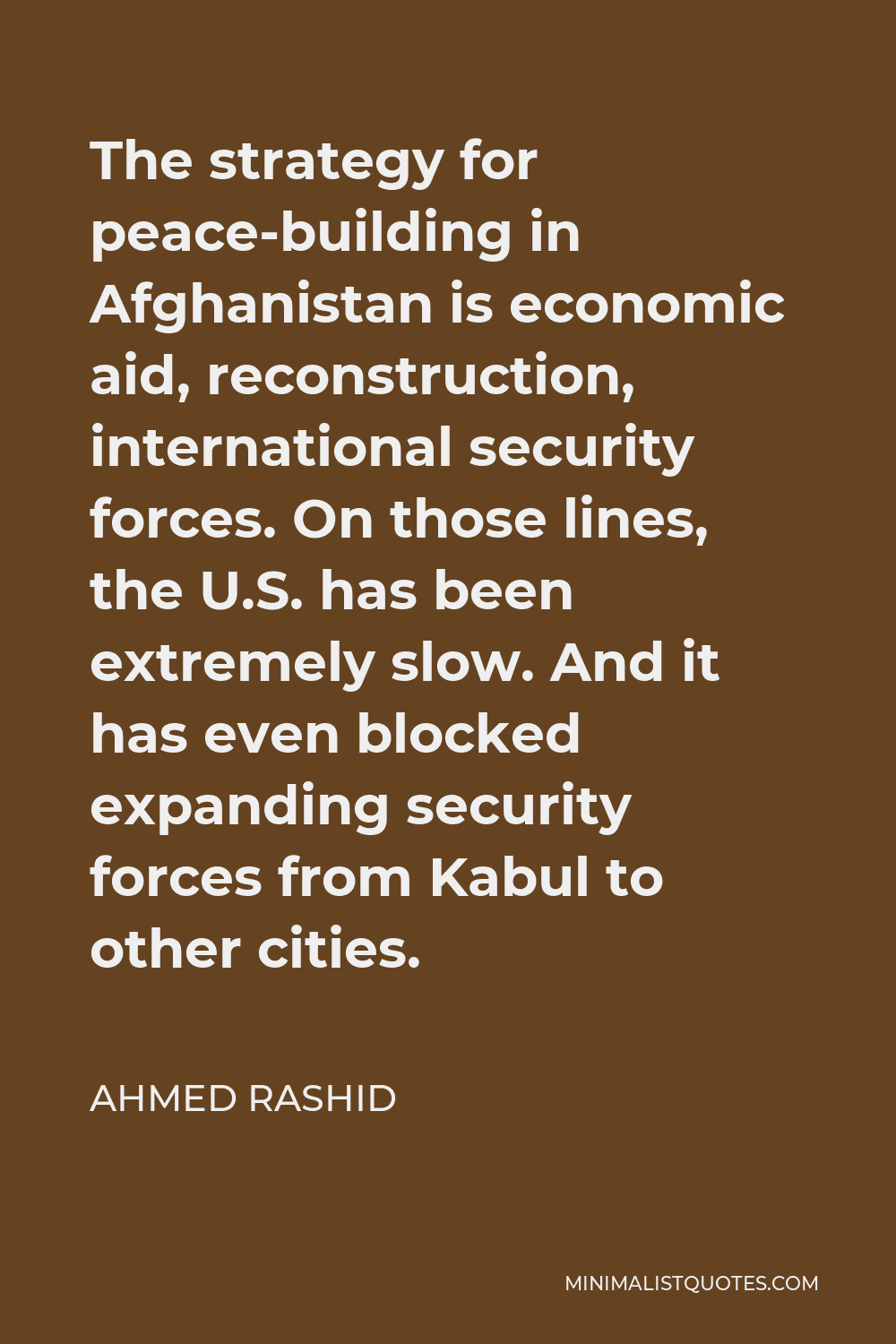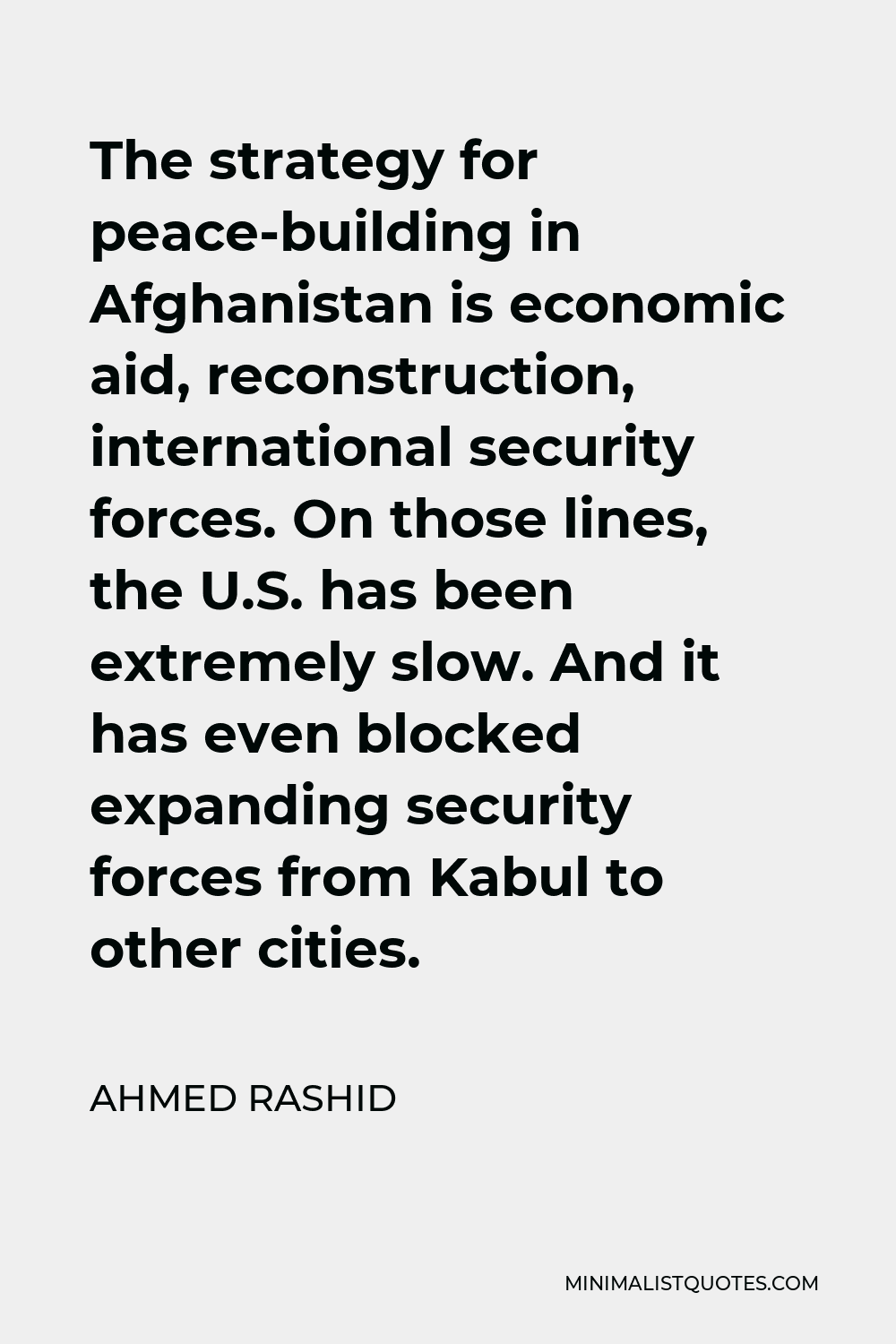In my view, the Western model of influencing the development of third world countries is doomed to failure.
AHMED RASHIDThe strategy for peace-building in Afghanistan is economic aid, reconstruction, international security forces. On those lines, the U.S. has been extremely slow. And it has even blocked expanding security forces from Kabul to other cities.
More Ahmed Rashid Quotes
-





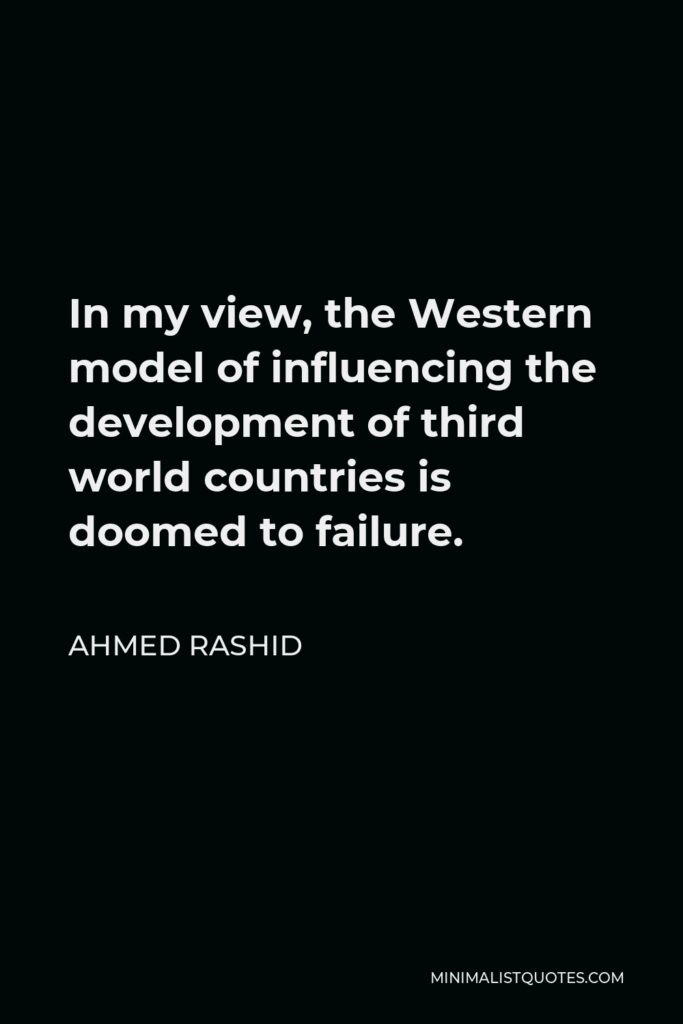

-





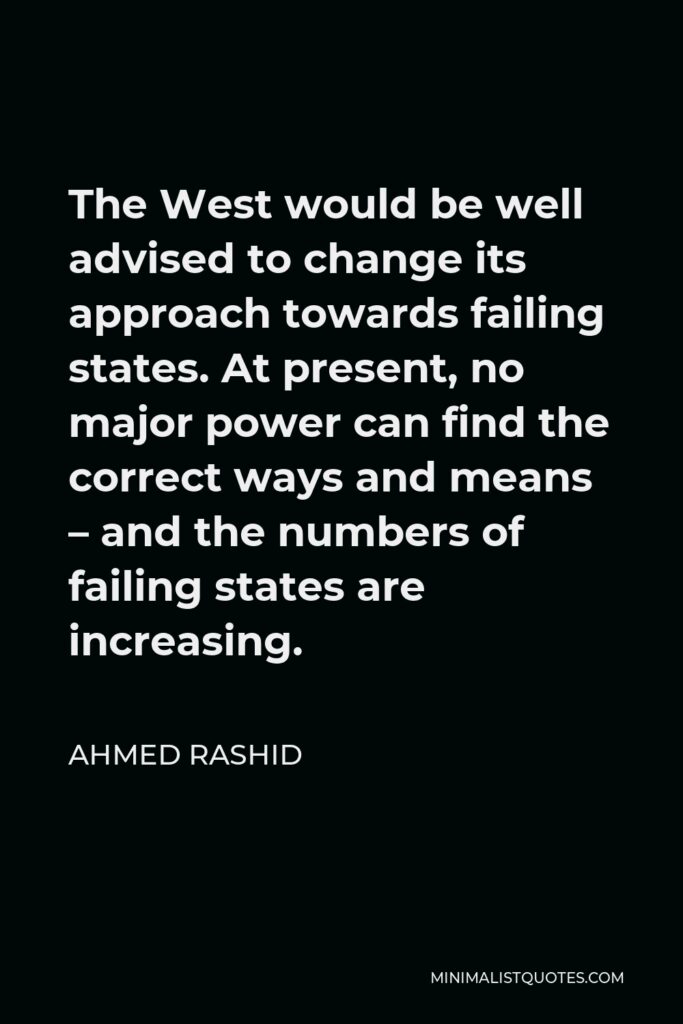

The West would be well advised to change its approach towards failing states. At present, no major power can find the correct ways and means – and the numbers of failing states are increasing.
AHMED RASHID -





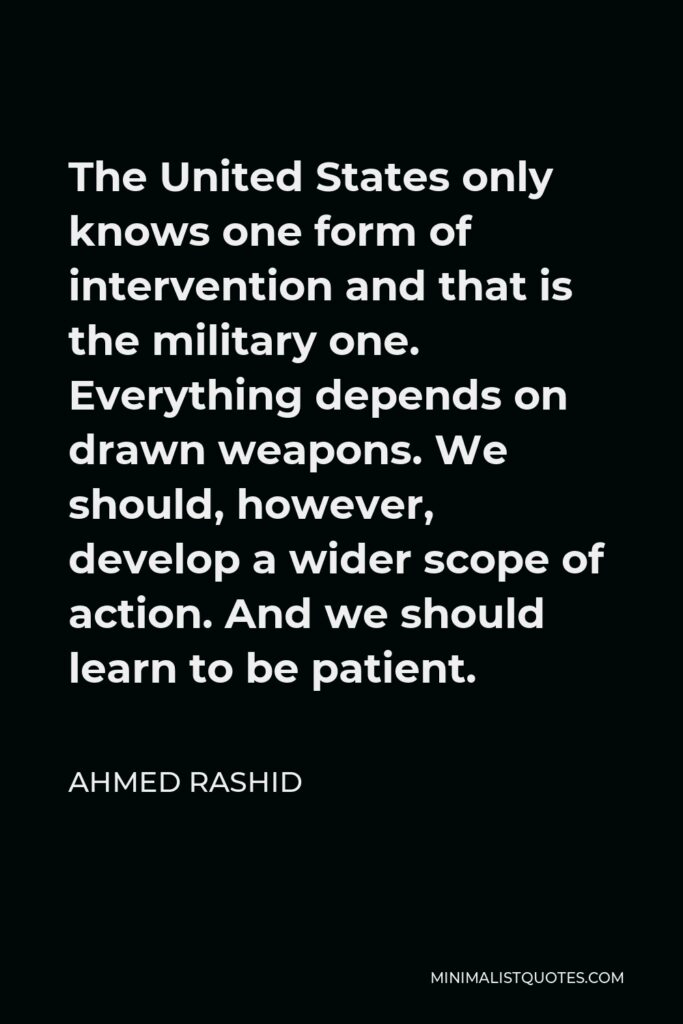

The United States only knows one form of intervention and that is the military one. Everything depends on drawn weapons. We should, however, develop a wider scope of action. And we should learn to be patient.
AHMED RASHID -





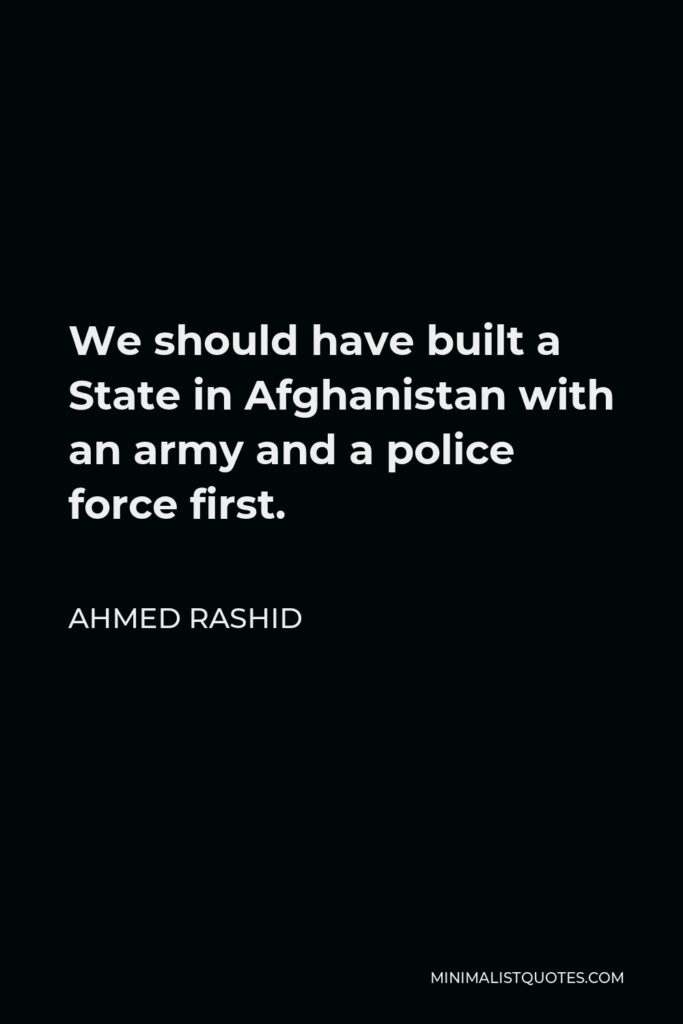

We should have built a State in Afghanistan with an army and a police force first.
AHMED RASHID -





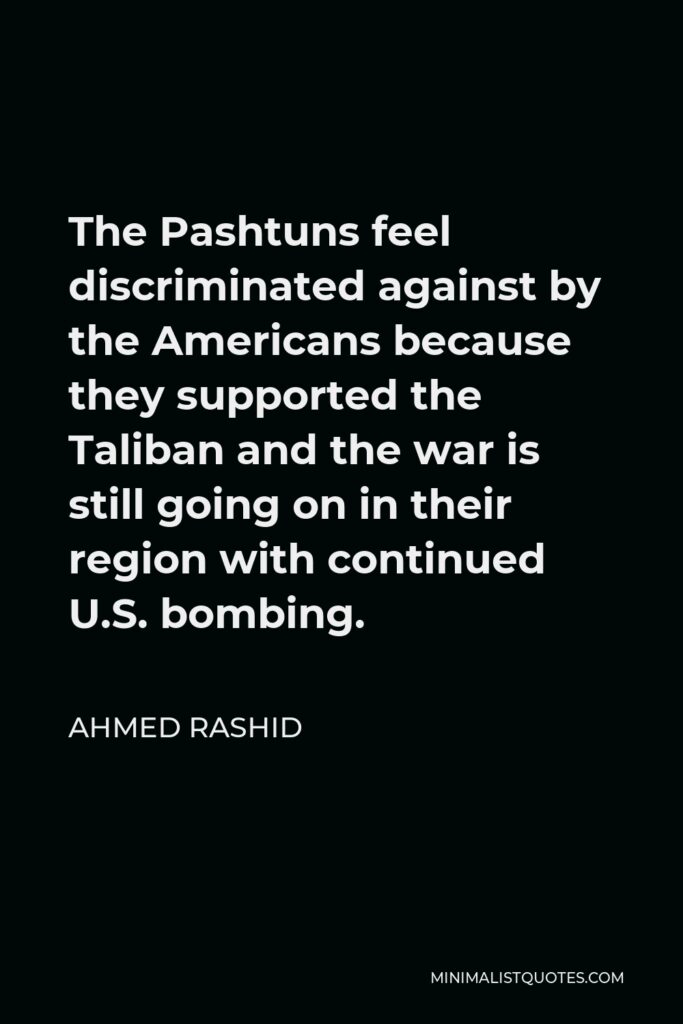

The Pashtuns feel discriminated against by the Americans because they supported the Taliban and the war is still going on in their region with continued U.S. bombing.
AHMED RASHID -





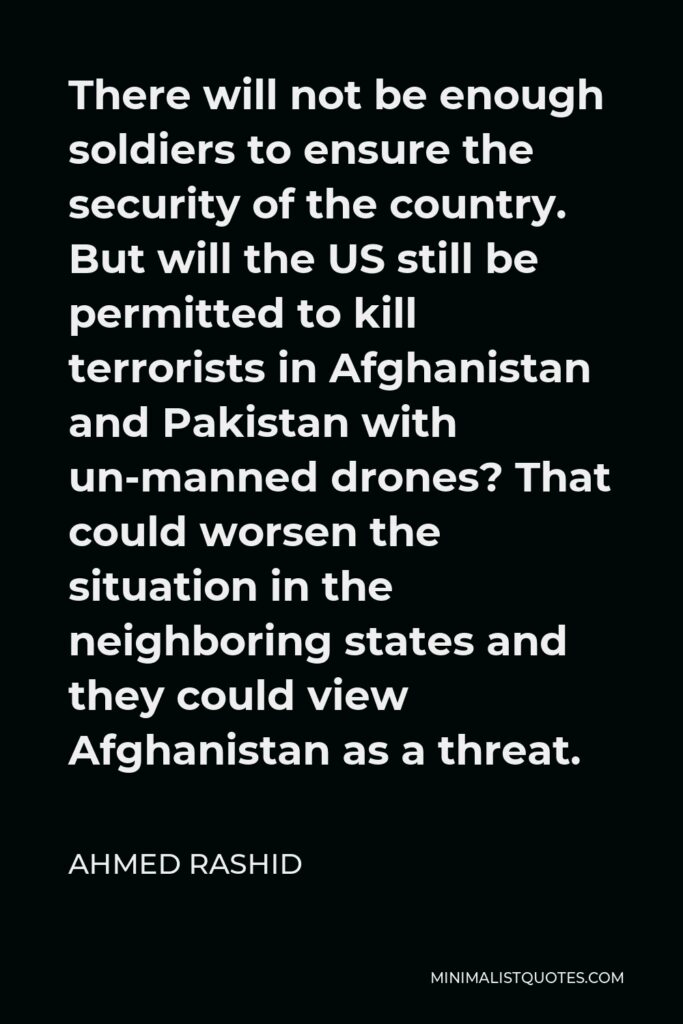

There will not be enough soldiers to ensure the security of the country. But will the US still be permitted to kill terrorists in Afghanistan and Pakistan with un-manned drones? That could worsen the situation in the neighboring states and they could view Afghanistan as a threat.
AHMED RASHID -





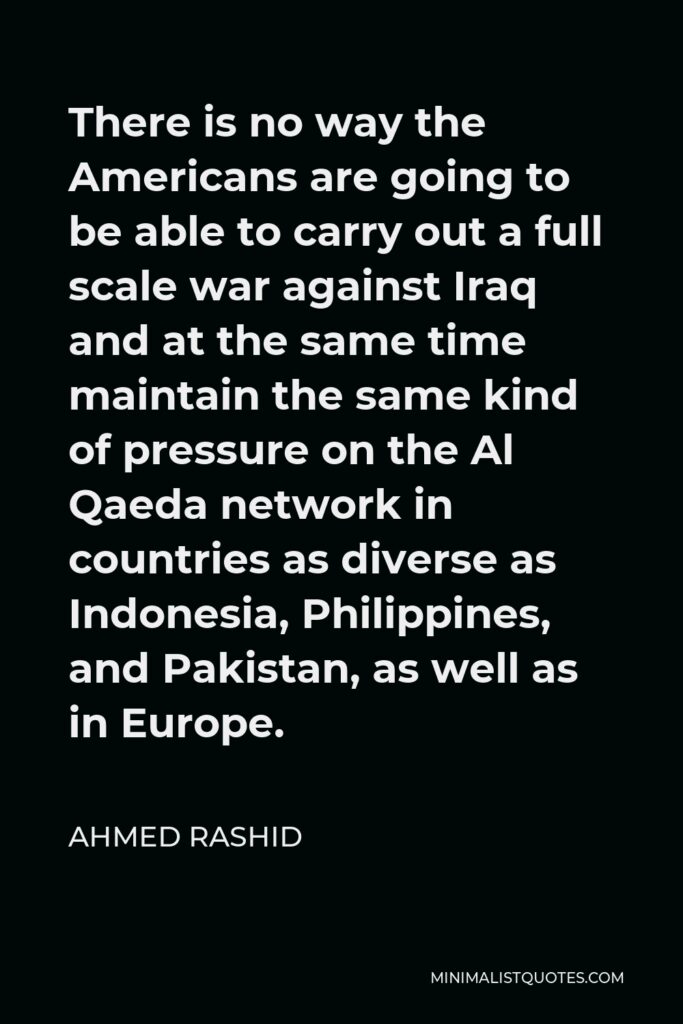

There is no way the Americans are going to be able to carry out a full scale war against Iraq and at the same time maintain the same kind of pressure on the Al Qaeda network in countries as diverse as Indonesia, Philippines, and Pakistan, as well as in Europe.
AHMED RASHID -





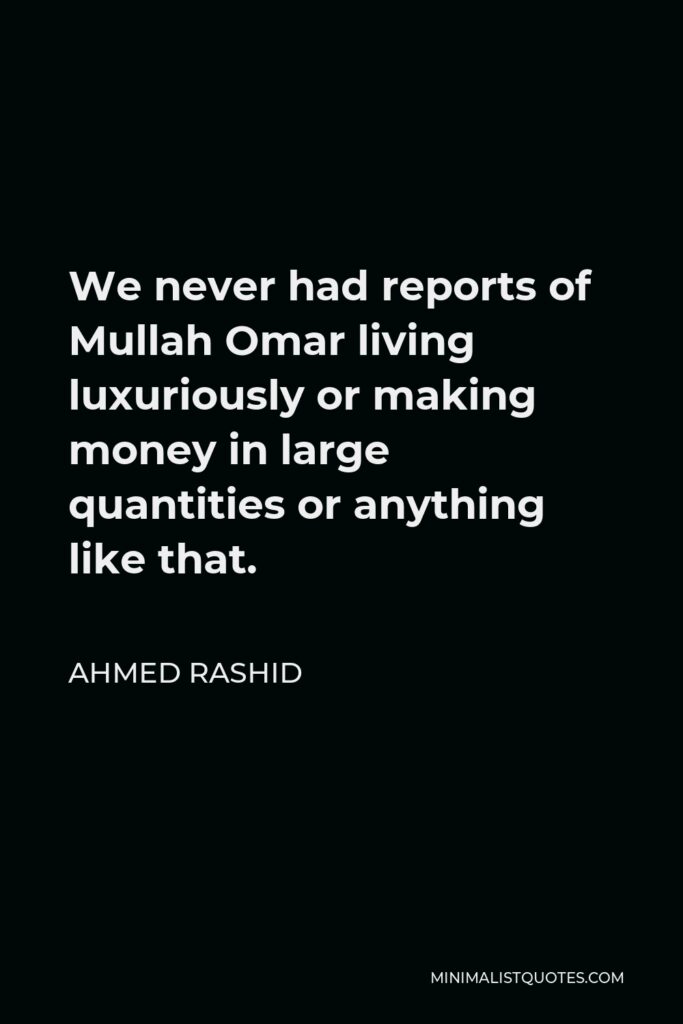

We never had reports of Mullah Omar living luxuriously or making money in large quantities or anything like that.
AHMED RASHID -





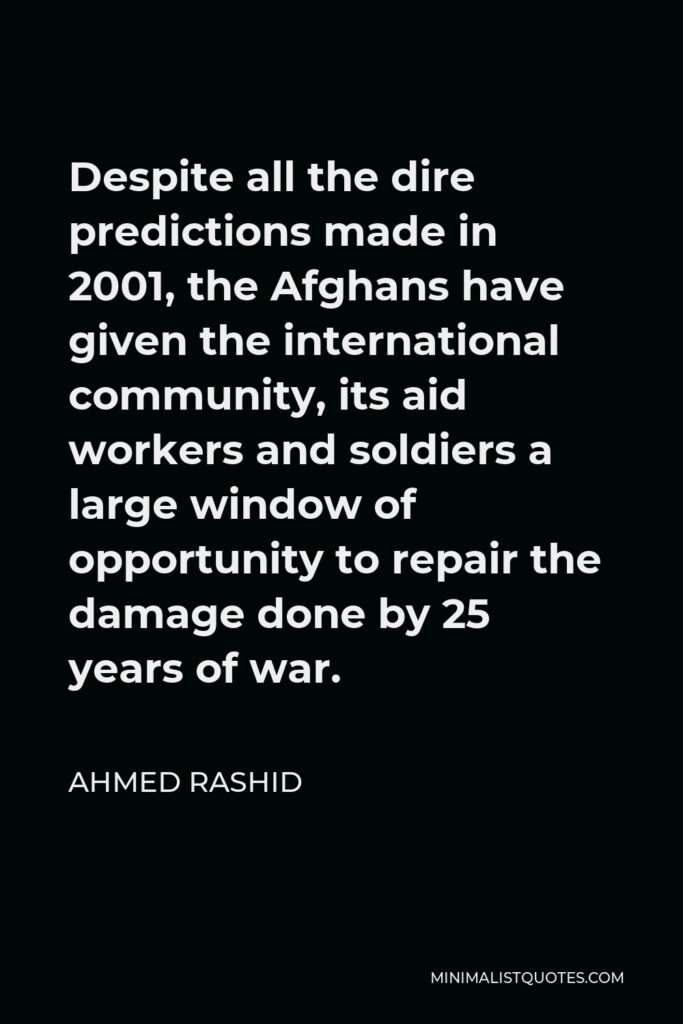

Despite all the dire predictions made in 2001, the Afghans have given the international community, its aid workers and soldiers a large window of opportunity to repair the damage done by 25 years of war.
AHMED RASHID -





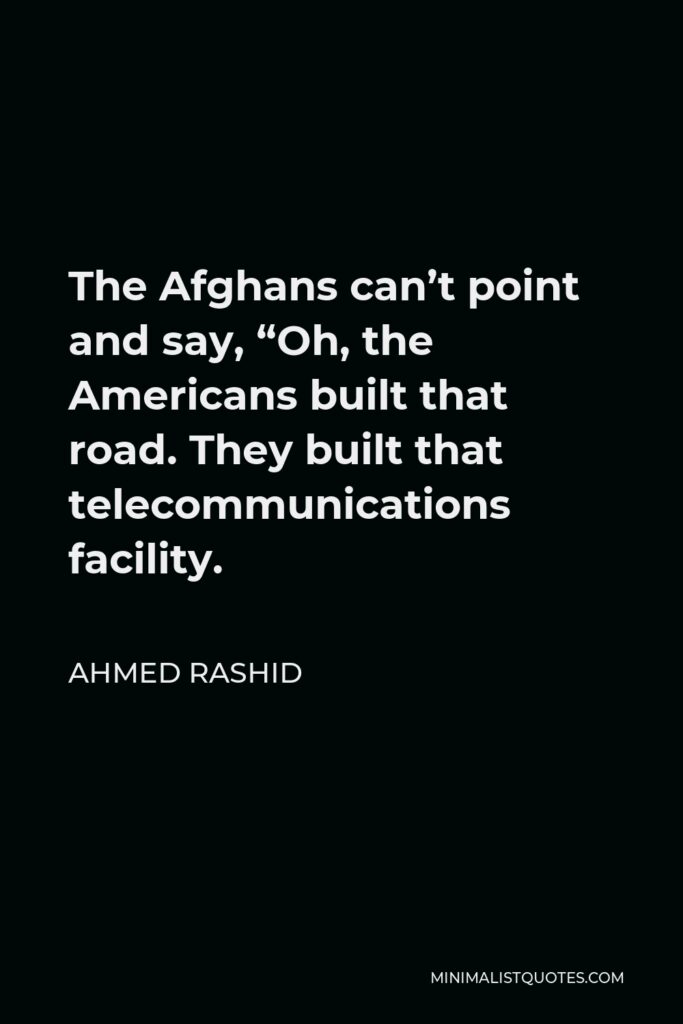

The Afghans can’t point and say, “Oh, the Americans built that road. They built that telecommunications facility.
AHMED RASHID -





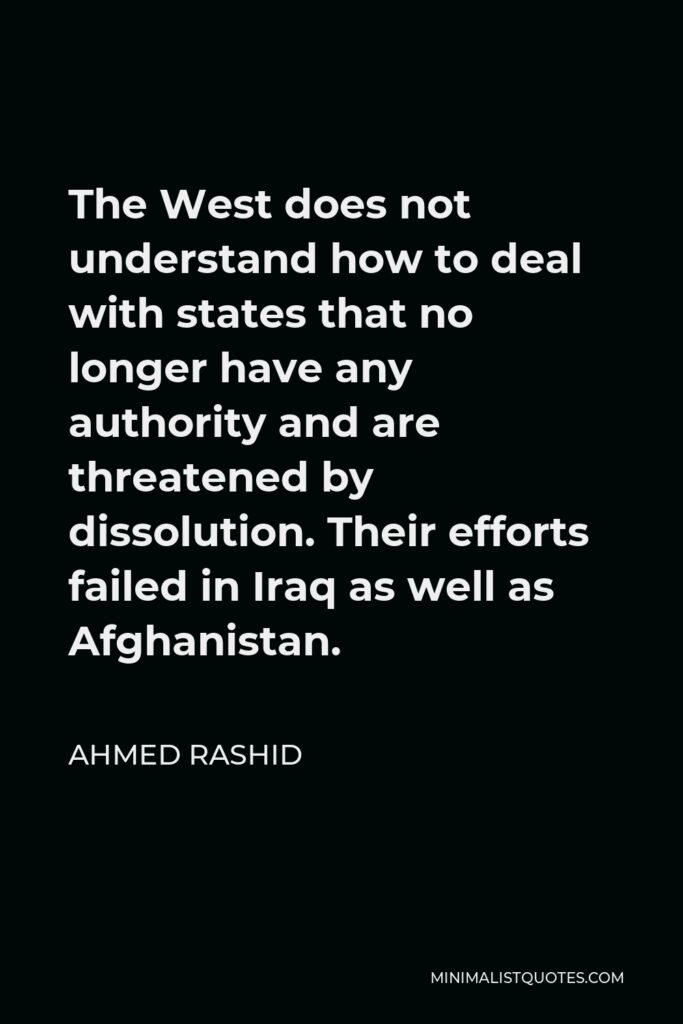

The West does not understand how to deal with states that no longer have any authority and are threatened by dissolution. Their efforts failed in Iraq as well as Afghanistan.
AHMED RASHID -





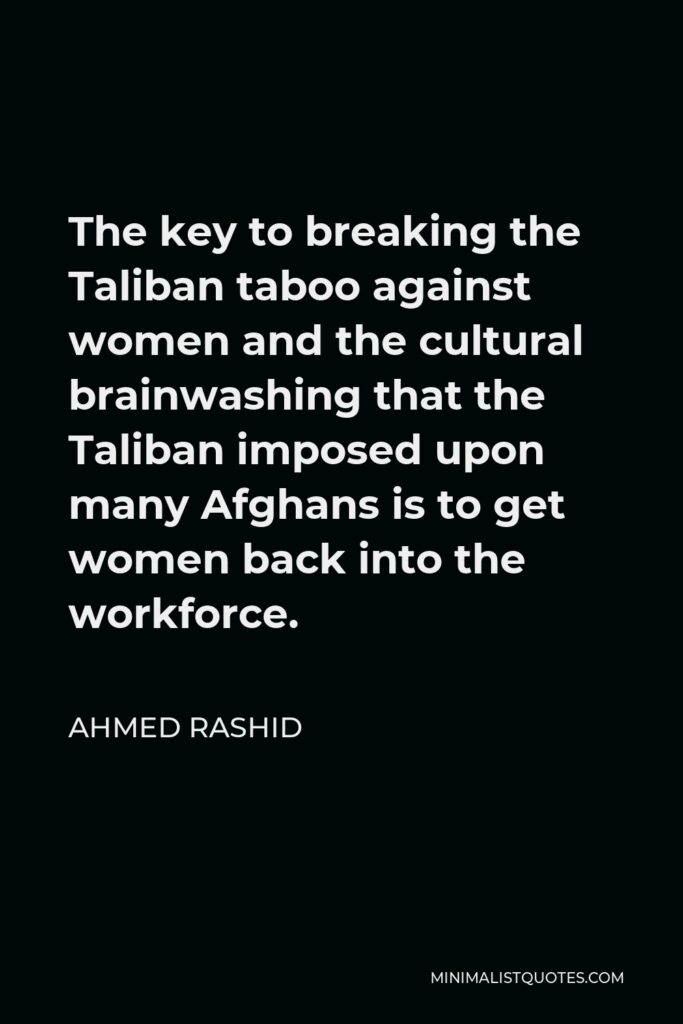

The key to breaking the Taliban taboo against women and the cultural brainwashing that the Taliban imposed upon many Afghans is to get women back into the workforce.
AHMED RASHID -





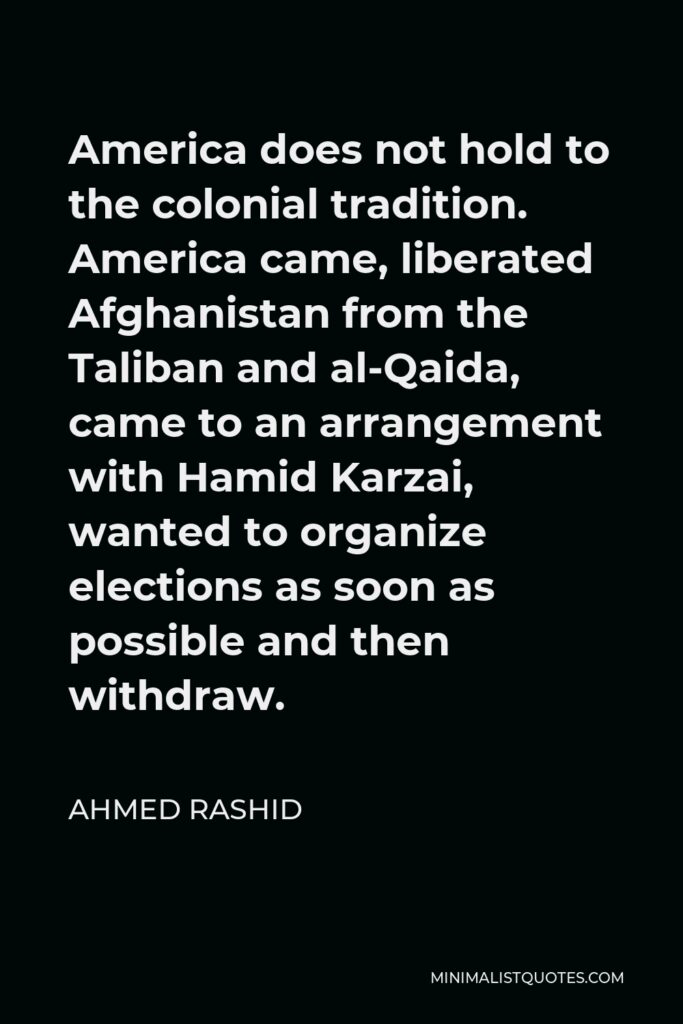

America does not hold to the colonial tradition. America came, liberated Afghanistan from the Taliban and al-Qaida, came to an arrangement with Hamid Karzai, wanted to organize elections as soon as possible and then withdraw.
AHMED RASHID -





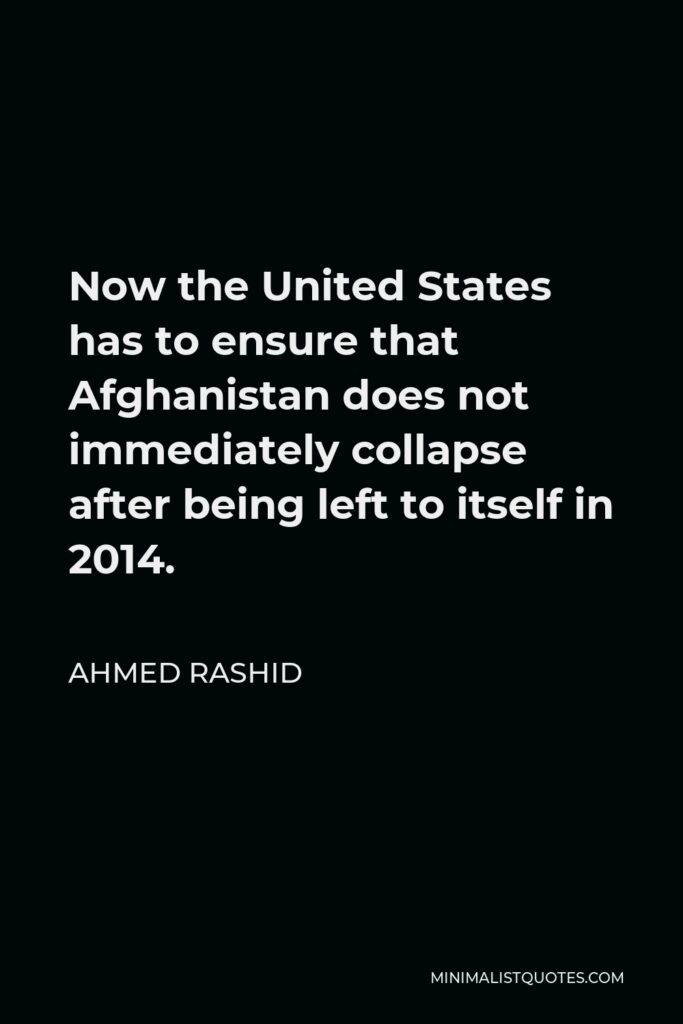

Now the United States has to ensure that Afghanistan does not immediately collapse after being left to itself in 2014.
AHMED RASHID -





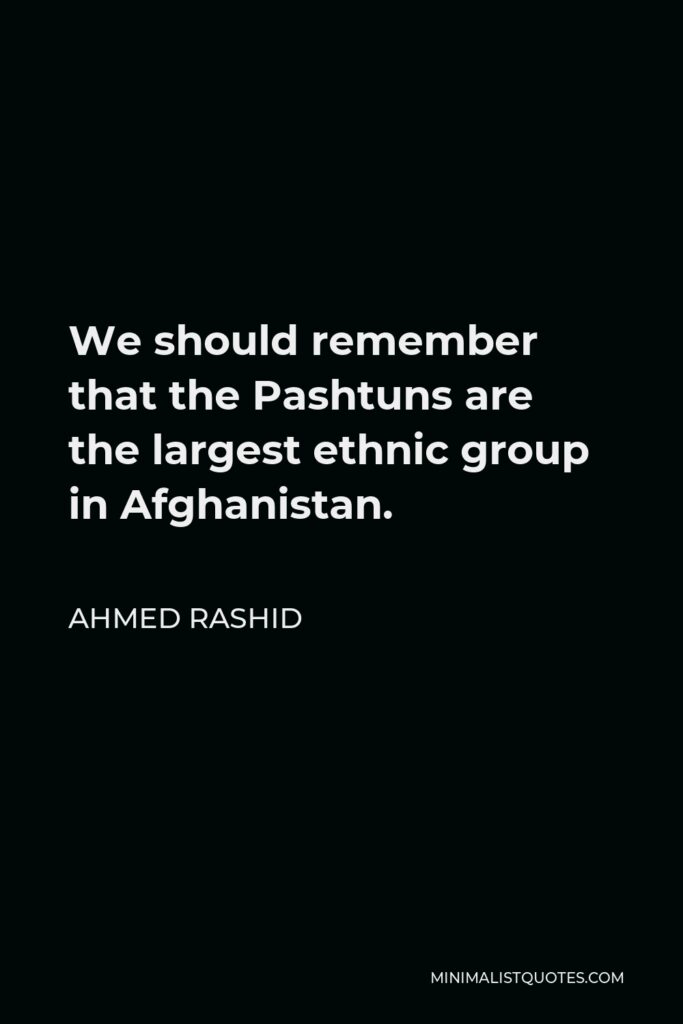

We should remember that the Pashtuns are the largest ethnic group in Afghanistan.
AHMED RASHID -





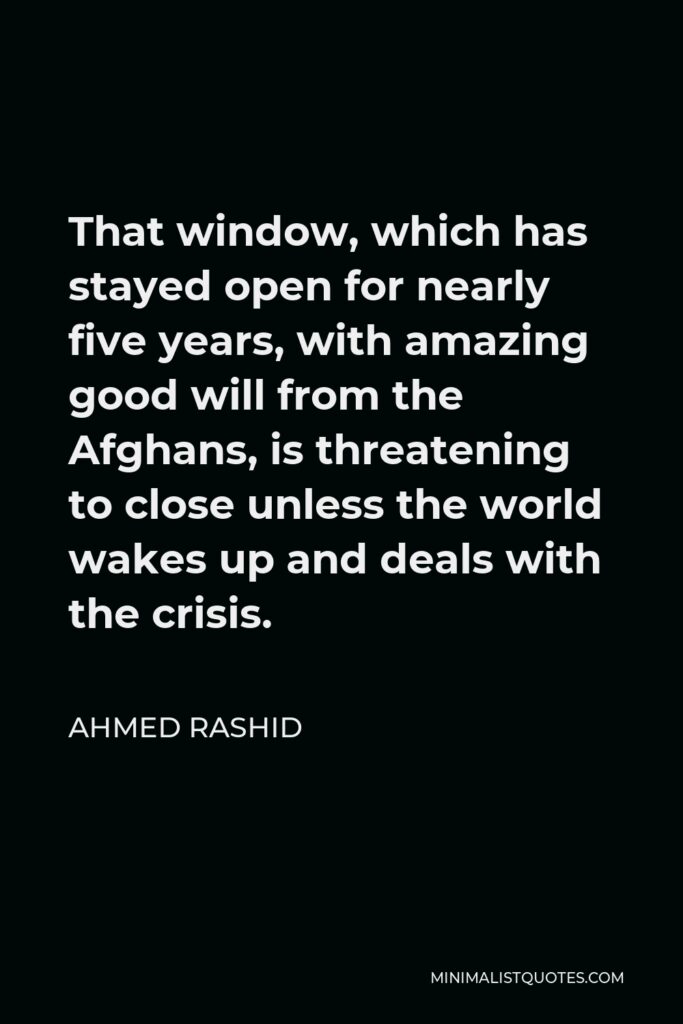

That window, which has stayed open for nearly five years, with amazing good will from the Afghans, is threatening to close unless the world wakes up and deals with the crisis.
AHMED RASHID
